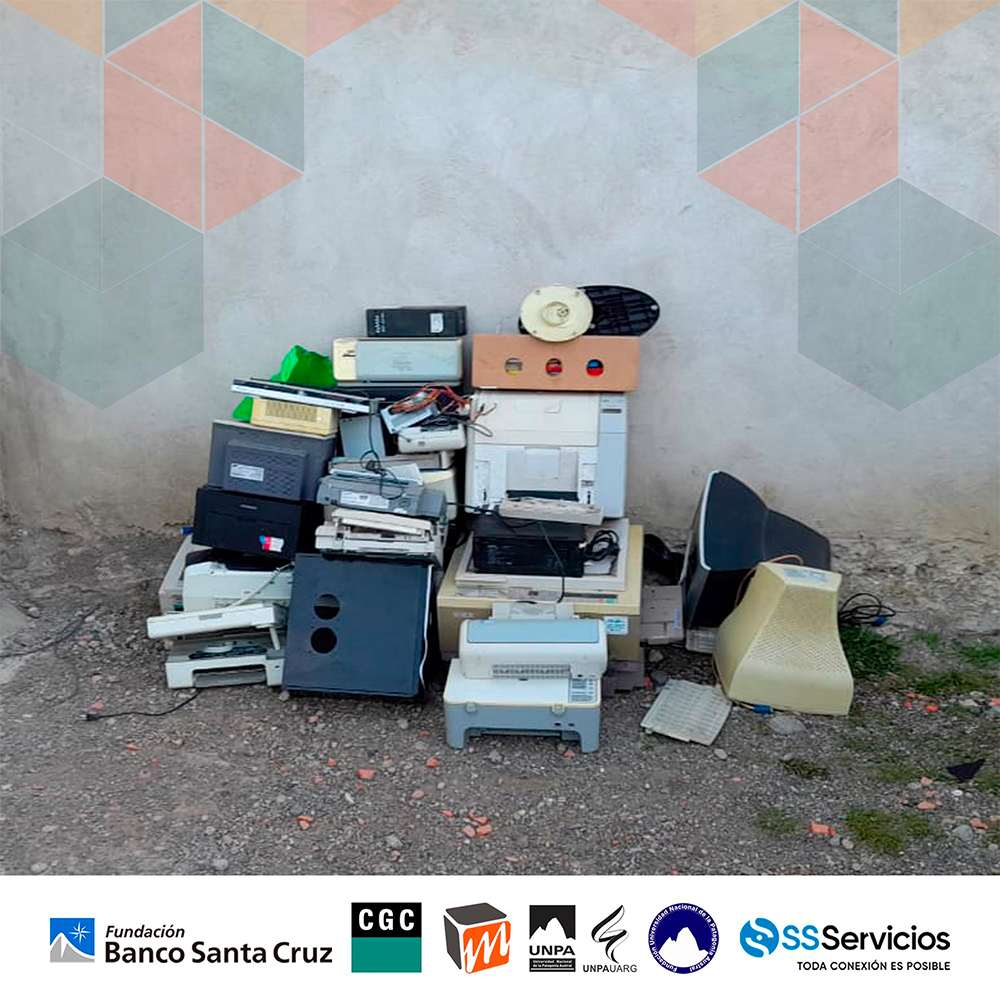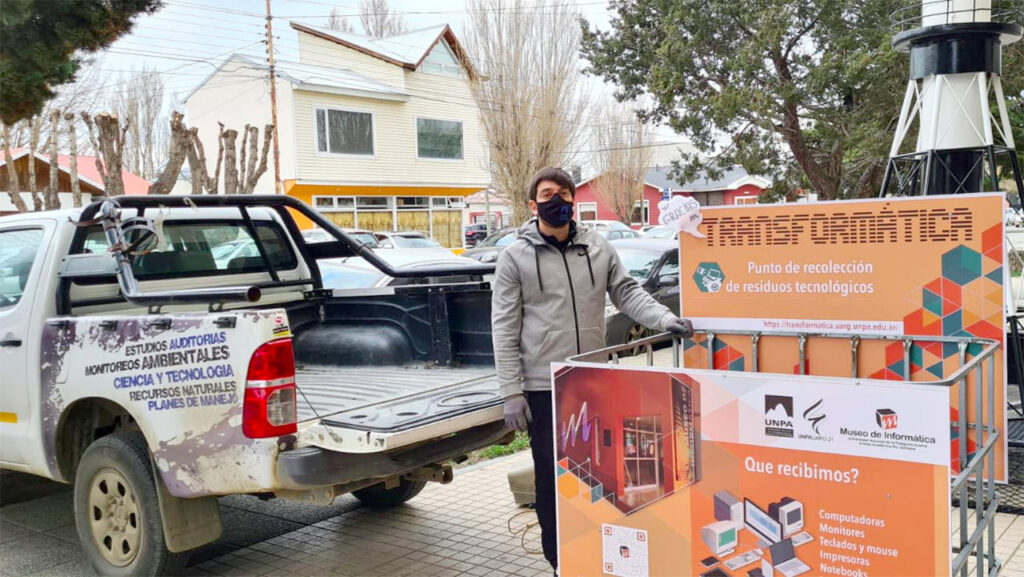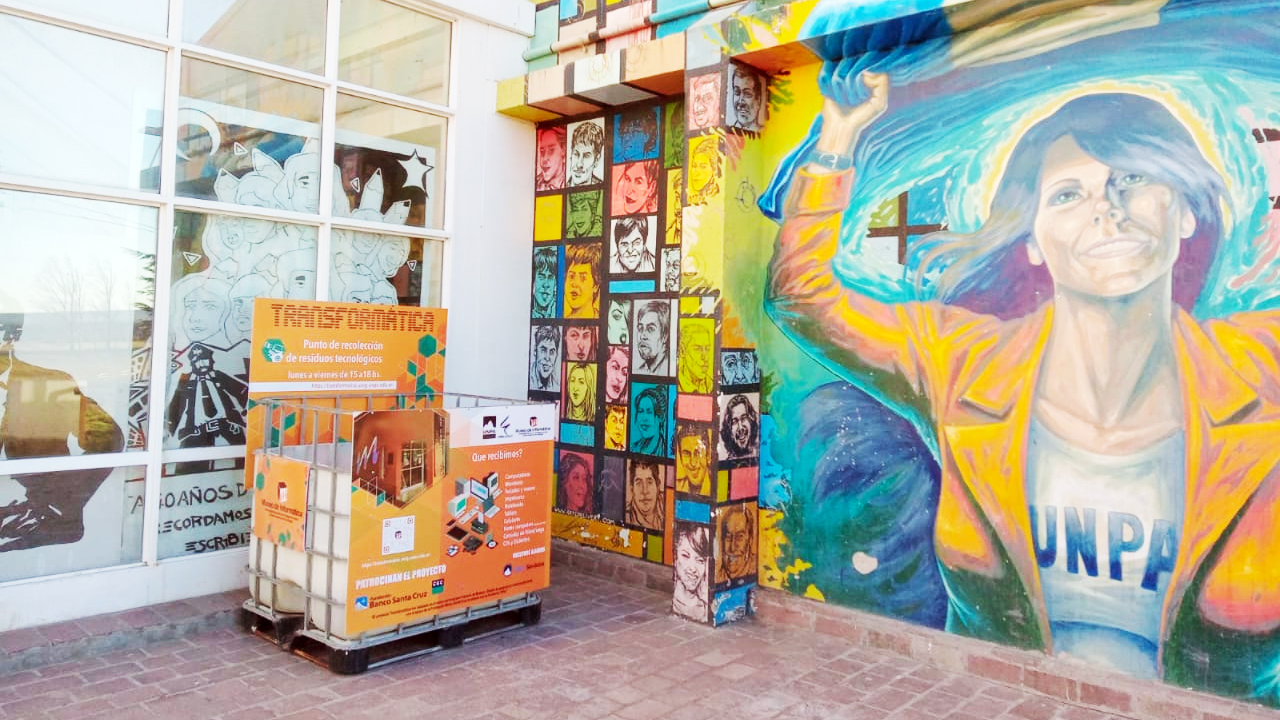The public museum that emerged from the Enlightenment offered itself as a pillar of society, one as integral to community needs as hospitals, post offices, and schools. Lockdowns forced museums to readdress this foundational function in digital space, with the panoply of click-through galleries, Zoom lectures, and apps answering the clarion call of maintaining public access to culture.
This digital revolution beaming out from museums globally, though doubtless essential and well-intentioned, takes digital connectivity entirely for granted. Museo de Informática UNPA-UARG, which operates in the expansive wilds of Patagonia, an area roughly the size of Texas and California combined, makes no such assumptions. Its approach to delivering accessibility during the pandemic has been quite literal: since March 2020, it’s been collecting, recycling, and donating computers.

Old or used computers collected by Transformatica are either donated, preserved, or recycled with profits going to a local children’s hospital. Image: Museo Informática UNPA UARG on Facebook
Based in Río Gallegos, the provincial capital, the Transformatica project serves a vast and sparsely populated region whose inhabitants have limited access to digital infrastructure, a problem exacerbated by increasing levels of poverty and restrictions placed on imported electronic goods that inflate prices.
The pandemic, which closed local education facilities, heightened the need to connect communities digitally. “The underlying conditions were far from optimal and the population was not prepared for the situation,” Osiris Sophia, Museo de Informática UNPA-UARG Director, tells Jing Culture & Commerce. “The main goal [of Transformatica] is to reduce the digital divide by recycling old and unused computers, and then donating them to those who need the hardware to access services.”
To collect equipment, Transformatica established so-called “green points”: two stationary sites around Rio Gallegos and a third roaming site which moved between other local institutions. It brought attention to such efforts through social networks (the physical kind), radio broadcasts, and, yes, online activities. To date, it’s received more than 13,000 pounds of recyclable hardware.

Transformatica’s collection points, which are set up around Rio Gallegos, have collected so far gathered some 13,000 pounds of recyclable hardware. Image: Museo Informática UNPA UARG on Facebook
Once hardware is received — the project prefers those using free and open-source Linux Operating Systems — it’s sorted into one of four groups: computers in good order are conditioned and donated, those of historic interest are held and presented at Museo de Informática, those with creative merit are assigned to local artists, and unusable equipment is recycled with profits donated to a local children’s hospital.
The project has been developed inside Museum Factory, a program by Buenos Aires-based non-profit TyPA Foundation that strives to turn museums into launching pads for socially engaged citizen action. Accordingly, the practical thrust of Transformatica is integrated with a broader set of activities including a campaign to raise awareness on the environmental impact of electronic waste, training workshops on reconditioning old computers, and community seminars on the risks and threats faced online.
For the past year and a half, Transformatica has shown how museums can be platforms not simply for cultural and educational enrichment, but to serve fundamental community needs. With the project set to end in December 2021, Sophia believes the onus rests with the government to drive technological accessibility: “Foundations and the private sector can help in this effort, but the intervention and guidance of the state is needed to find an affordable solution.”



